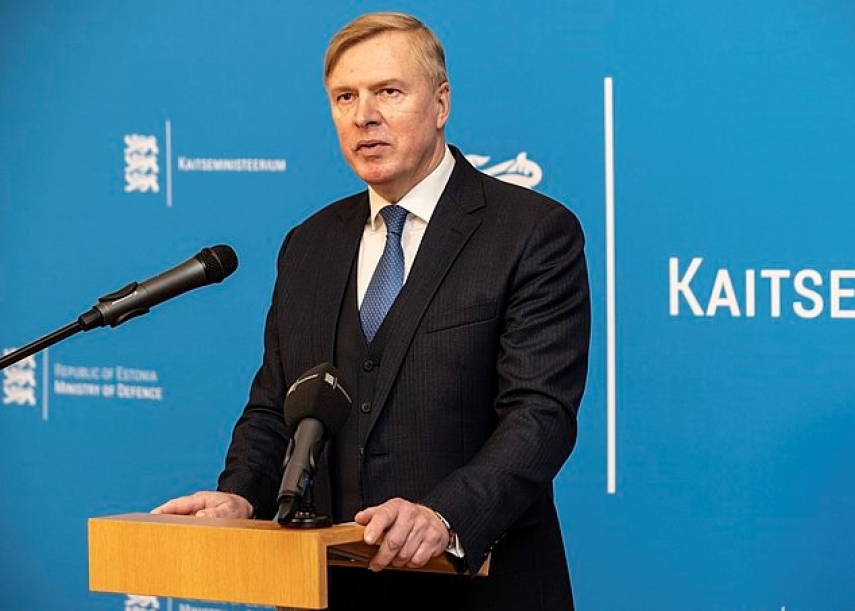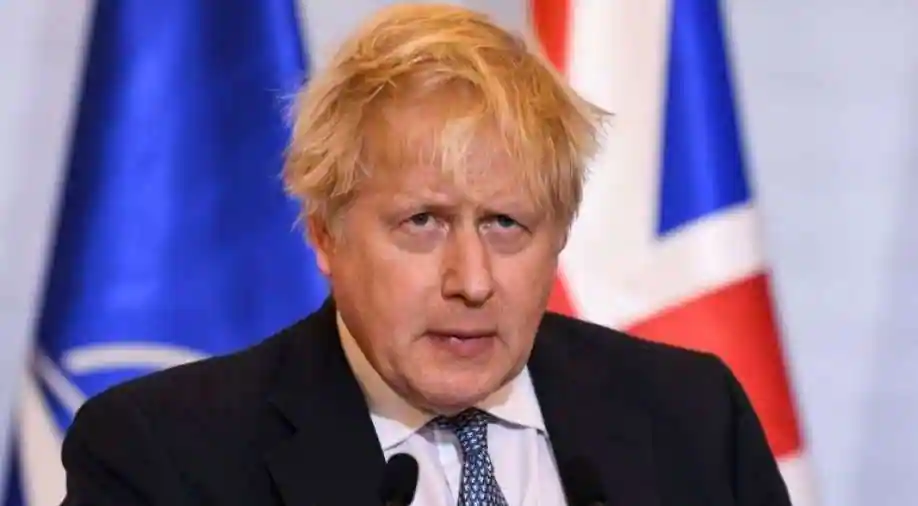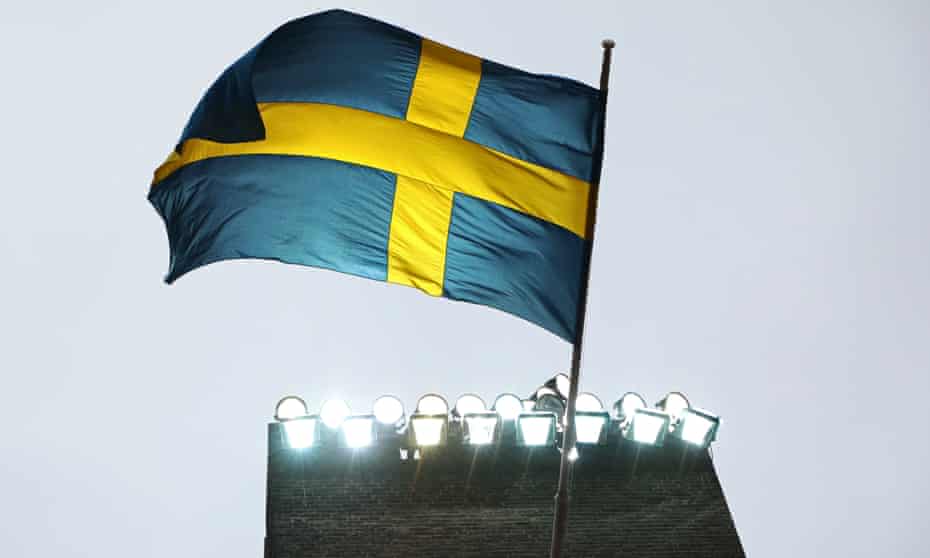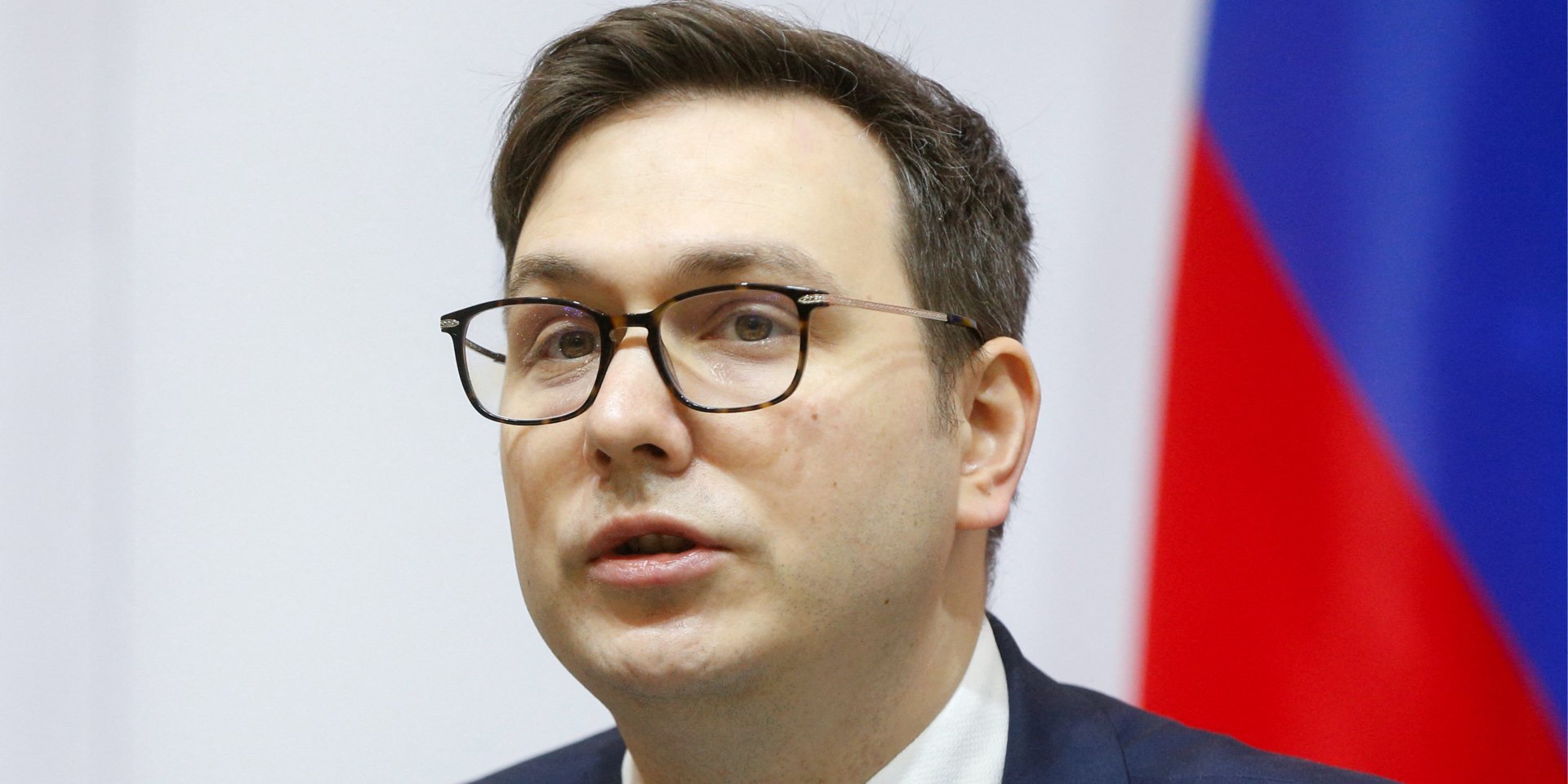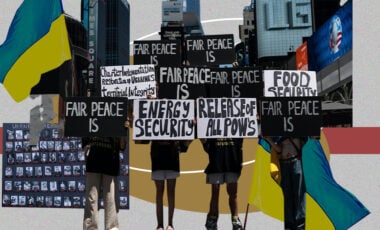Stopping Nord Stream 2, fighting misinformation, strengthening the army: how the world responds to Russia's threat
Returning the agencies of the Cold War and stopping the key to Russia is now a new reality. We explain what else the Western states have managed to do amid escalation
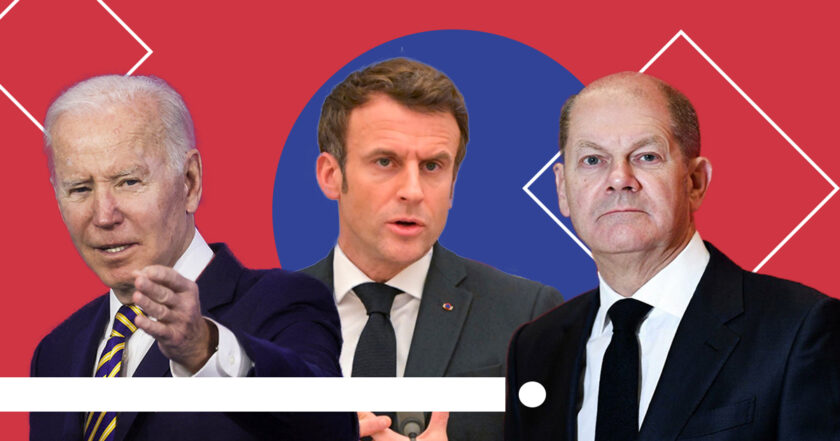
What is the problem?
The tensions that have accumulated over the weeks and resulted in Russia's recognition of the so-called "LDPR" and direct threats have affected not only Ukraine. The whole world is now closely following the events, and this time we know for sure: Russia will not deceive anyone or disguise its actions. Therefore, other countries were also preparing for the growth of Russia's aggression, both in the military and in the information sense. Rubryka explains what measures other countries have taken to combat Russia at the national level, and why it's important.
What is the solution?
Estonia strengthens defense
The three Baltic states, Lithuania, Latvia, and Estonia, are part of NATO and the European Union. An important prerequisite: these countries don't have their fighters. NATO allies have held several airspace patrols in the region since 2004, but they have no right to attack or defend. Two days ago, Estonia asked the United States to send fighters to the Baltic states to protect their skies amid fears that Russia might be ready to attack Ukraine, leading to a confrontation with the Baltic region. This was announced on Saturday by the country's Defense Minister.
"It is likely that if Ukraine falls, the Baltic states will be next," Estonian Minister Kalle Laanet told Reuters after meeting with US Secretary of Defense Lloyd Austin in the Lithuanian capital, Vilnius. Austin, in turn, promised that Washington would support its Baltic allies, but refused to respond to their calls for additional troops.
However, the statements of different representatives of the Estonian government differed. For example, Prime Minister Kaja Kallas said in an interview with Deutsche Welle that she didn't see a military threat at the borders, noting that since Estonia is part of NATO, it means that they have the fifth article, which shows that attacking one NATO member is equal to attacking everyone.
"Our allies are on our side. But if something happens in Ukraine, the general security situation will change not only in the Baltic states but in the whole of Europe, because there will be a big war in Europe," Kallas predicted.
Britain returns Cold War agencies, intends to fight espionage harder, and seriously considers cybersecurity
The United Kingdom will set up a special Center for Government Information to combat misinformation from Russia, said Foreign Minister Liz Truss. Such a center already existed during the Cold War, but after its end, it was disbanded.
In addition, the British government will soon introduce a bill aimed at expanding the powers of law enforcement agencies in the fight against espionage.
But that's not all. The head of the British National Cyber Security Center (NCSC) Lindy Cameron stated the growing threats in the field of cybersecurity amid growing political tensions in Europe. A few days ago, Jeremy Fleming, head of the United Kingdom's Government Communications Headquarters (which includes the NCSC), met with representatives of the UK's largest businesses, warning them of the need to strengthen cybersecurity of leading British companies due to the increased risk.
Sweden also mentioned the Cold War and is re-establishing a psychological defense agency
Sweden, like Britain, has also decided to revive a Cold War government body to combat foreign disinformation, the Psychological Defense Agency. This body worked in Sweden during the Cold War, and its mission is to protect society from fakes. The deputy director of the restored body, Magnus Hjort, noted that the phenomenon was especially relevant amid the next parliamentary elections to be held in Sweden in autumn 2022. He also added that he didn't rule out Russia's attempts to interfere in the election process. By the way, Sweden became the second EU country to create such a body before the election. The first was France, where the presidential election will take place in April. An agency was set up there to fight foreign disinformation and fake news in 2021.
Besides the psychological defense agency, other measures are being introduced. The build-up of Russian troops near the border with Ukraine has sparked a debate over whether Sweden and Finland, which are not members of NATO, should join the Alliance. According to Hjort, there is no immediate threat to Sweden, but "it cannot be ruled out that Sweden may be attacked." Another measure that Sweden decided to implement after the Crimea incident in 2014 was the restoration of "total defense," which includes military, civil and psychological security.
The Czech Republic asks not to believe the news fakes
After the regular meeting, the head of the crisis headquarters of the Czech Republic, Jan Lipavský, made a statement in which he warned citizens against misinformation and media manipulation used by Moscow:
"We're witnessing how Russia is producing several false information, creating its scenarios that could somehow justify Russia's aggression against Ukraine," the minister said. Among such fakes, he called the withdrawal of troops and added that Russian troops not only did not leave the border of Ukraine, but their number also continues to grow. (To recap, after Jan Lipavský's statements on February 21, Putin announced the introduction of troops into the so-called "republics" he had just recognized). The game of misinformation, according to Lipavský, in this particular example is to substitute the concepts of "regrouping" and "diversion."
The world's reaction to "LDPR" recognition
Nord Stream 2 will be temporarily suspended
German Chancellor Olaf Scholz has also announced a halt to Nord Stream-2 certifications. Scholz said he had approached the economy ministry about the pipeline. He asked the agency to withdraw the "existing report on the security of supply analysis at the Federal Network Agency":
"It sounds a bit technical, but it is a necessary administrative step to prevent the certification of Nord Stream-2. Without this certification, it will not be able to work," said the Chancellor. So far, the situation boils down to the fact that the German Ministry of Economy will re-evaluate the Nord Stream-2 project; it will not be launched before that, the Minister said.
"Approval is impossible without this certificate," the ministry said.
In the coming weeks, the Federal Ministry of Economy intends to carefully study the impact of geopolitical events and situations in eastern Ukraine on the security of supply.
Condemnation and refusal to recognize the independence of the so-called "republics"
Scholz, Biden, and Macron consider it a clear violation of the Minsk agreements to recognize Russia's independence as "LPR" and "DPR." The leaders of Germany and France have promised that Russia's recognition of the LDPR "will not go unanswered." Austria, Finland, Moldova, and Romania also condemned Putin's actions. An official statement was also made by the Turkish Foreign Ministry, in which it condemned the recognition of "LDPR."
The Japanese Foreign Ministry called on its citizens to leave Ukraine immediately, as it doesn't rule out the expansion of the combat zone. But it's not just Japan that fears for its diplomats, for example, the United States has said its diplomats will spend some nights in Poland.
Sanctions and additional defense weapons
The Baltic states and Poland called for new sanctions against Russia, and the presidents of the European Commission and the European Council called the recognition of the independence of the so-called "LDPR" a violation of international law and Ukraine's territorial integrity. In particular, Josep Borrell called for the urgent convening of the UN Security Council and called the points of Putin's decrees on maintaining peace in the "LDPR" direct aggression against Ukraine.
The Prime Minister and the Minister of Foreign Affairs of the United Kingdom called the recognition of ORDLO a violation of the territorial integrity and sovereignty of Ukraine. Liz Truss noted that Putin's decision demonstrated a blatant disregard for Russia's commitments under the Minsk agreements. Volodymyr Zelenskyy has already had a telephone conversation with British Prime Minister Boris Johnson, and he told Zelenskyy that the United Kingdom would consider sending additional defense weapons to Ukraine.
US sanctions prohibit all investments in the so-called "DPR" and "LPR," export of them to the United States. Biden signed the decree almost immediately after it became known about Putin's decrees. Tougher measures proposed by Republicans to ban SWIFT payments to Russia and the energy embargo have not yet been introduced. But the night is young: US envoy to the UN Linda Thomas-Greenfield has promised that on February 22 the Biden administration will announce new sanctions against Russia. They also support Ukraine's call to convene an emergency meeting of the UN Security Council in connection with Russia's decision on Donbas.
CSTO countries' reaction
Belarus hasn't reacted to the events, but the reaction of the neighboring state is predictable: a few days ago Lukashenko said they would "agree" with Putin: "We will agree with Putin on how to do better for Russia and Belarus. But it will be a joint decision," Lukashenko said. Given that the statement was made during the Union Determination-2022 joint exercises, while Russian troops are on the territory of Belarus, they're likely to agree not in favor of Ukraine. And in Serbia, President Aleksandar Vučić said Putin's decision was changing the world order.
We will learn about the reaction of Kazakhstan, which is a member of the CSTO with Russia, only in the evening, but the government says: the state is not going to recognize "LPR" and "DPR": "But I must assure you that we don't have the recognition of 'republics' in the Donetsk and Luhansk regions by Kazakhstan on the agenda. We base on the principles of international law and the principles of the UN Charter," said Kazakh Foreign Minister Mukhtar Tleuberdi.
Even more useful solutions!
It's not the body that opposes misinformation, but each of us
Jānis Sārts, director of the NATO Strategic Communications Centre of Excellence, said that any flow of information in a democracy was difficult and might not be necessary, but instead, people need to be taught to recognize fictitious messages.
"I would say that the greatest attention should be paid to the ability of people to recognize misinformation or, at least, be skeptical of various allegations. Because, as I said, Russia has turned on the whole mechanism," Sārts said. Sārts acknowledged that an environment free of Russian disinformation was unlikely in the near future.
That is why it's important to analyze information, try not to overload yourself with the number of sources, trust only proven resources.


